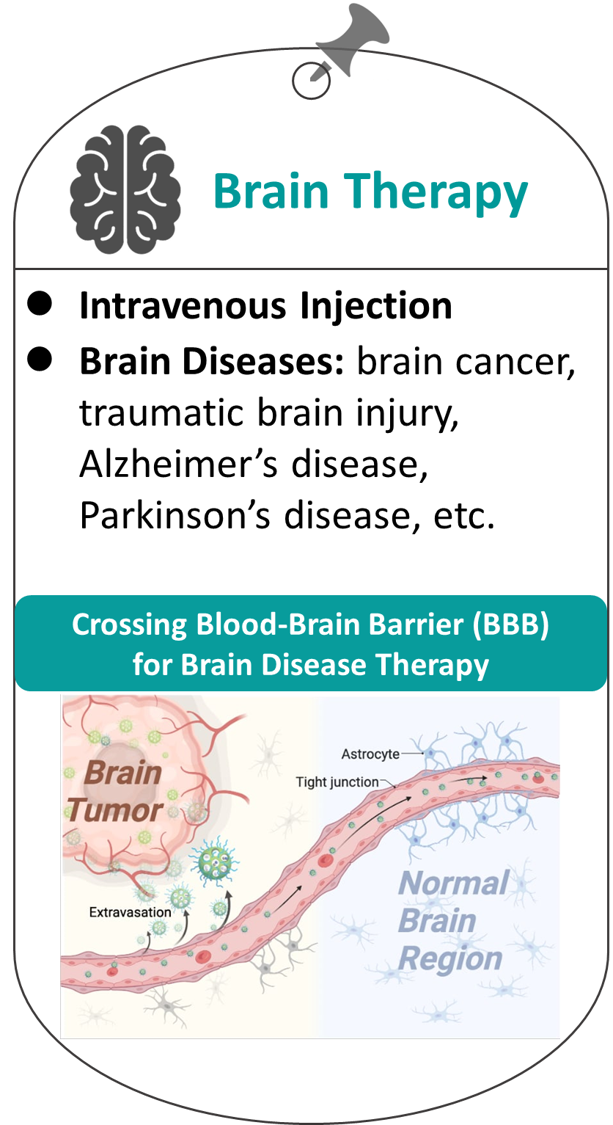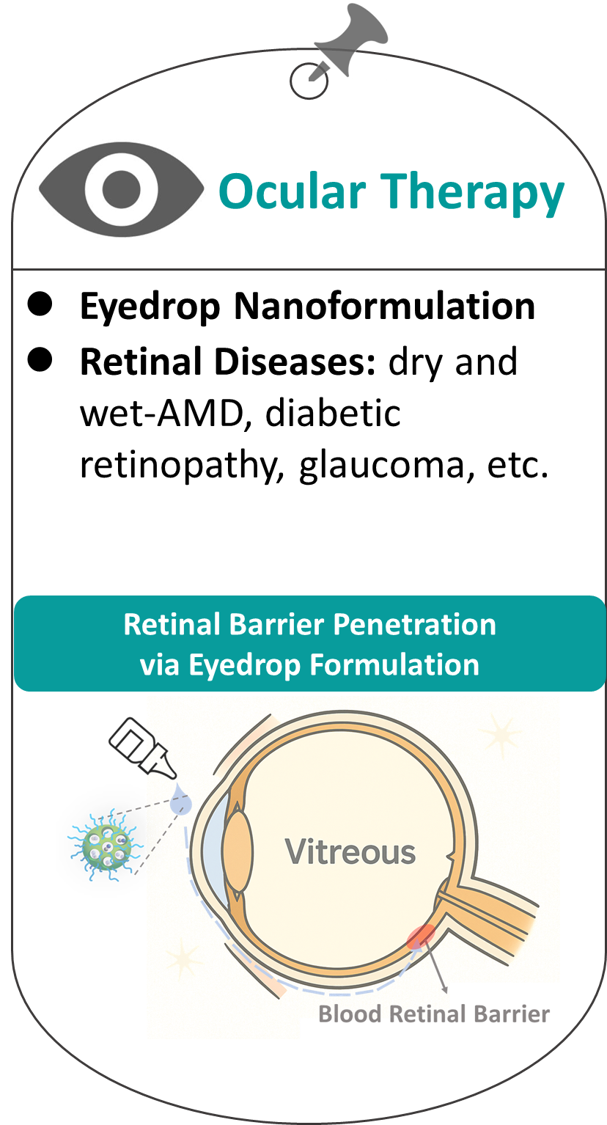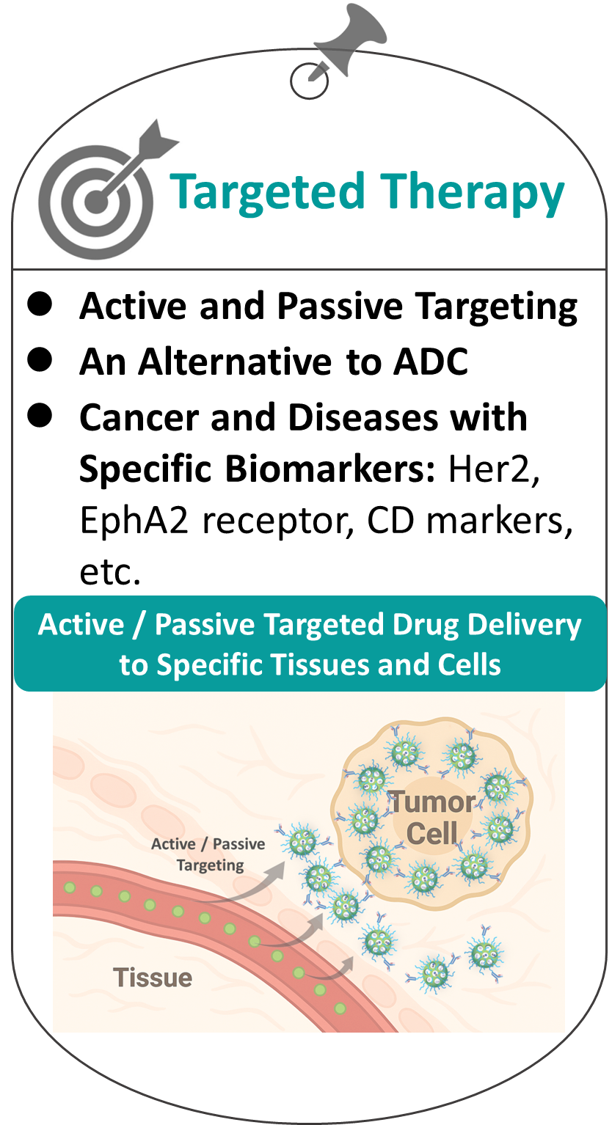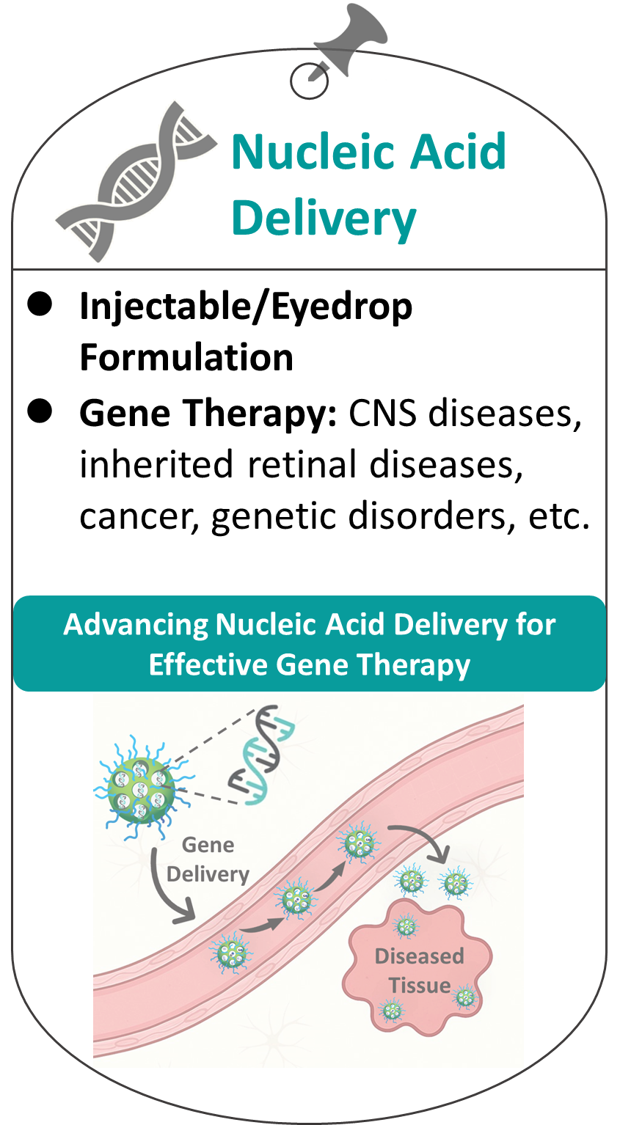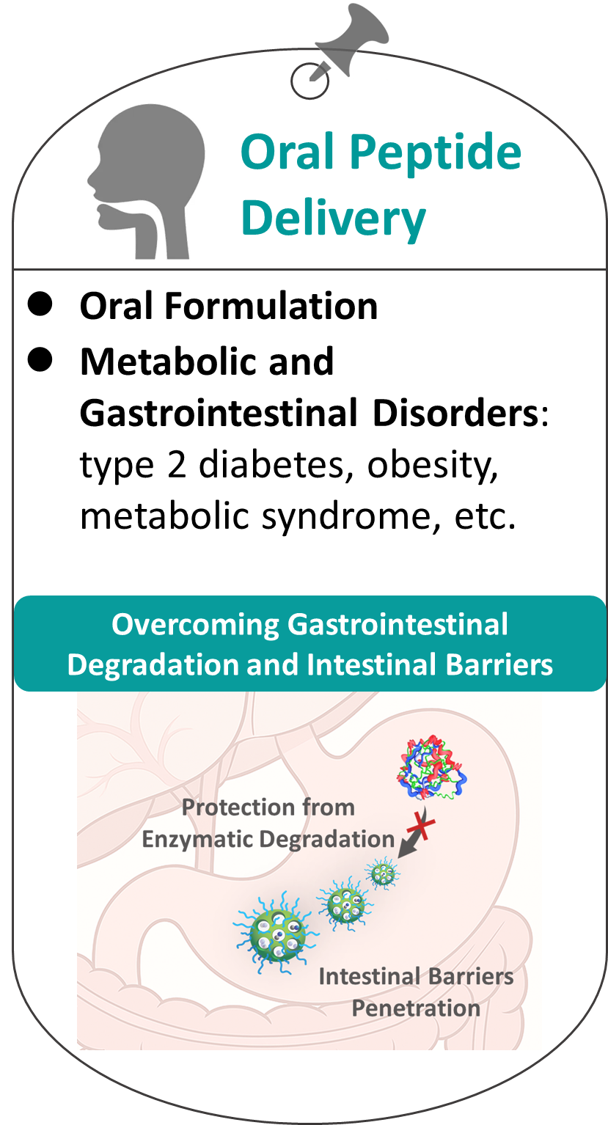MSN Drug Delivery Platform
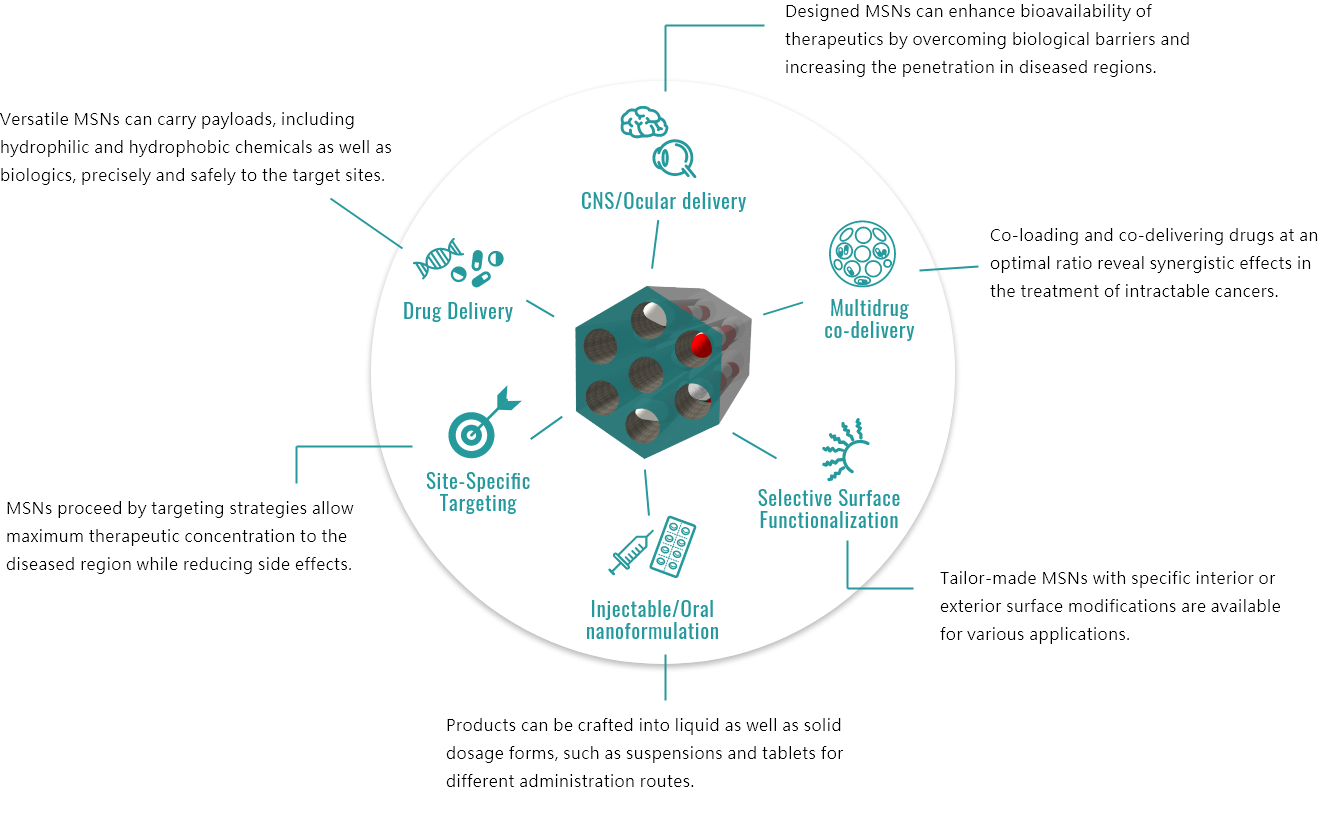
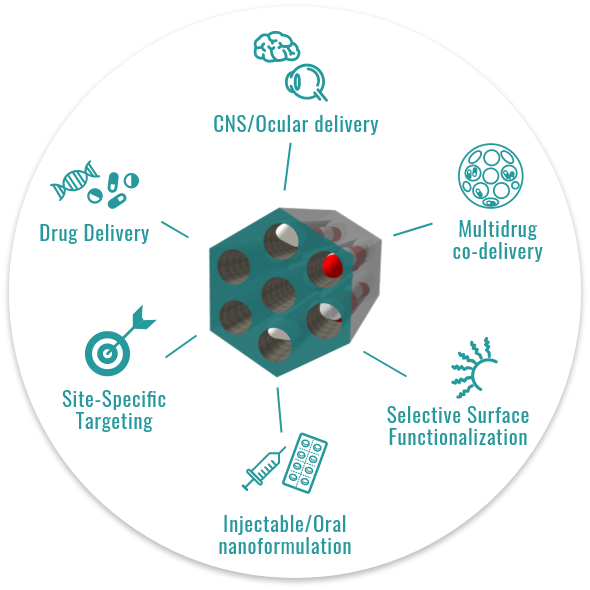
CNS/Ocular delivery
Effective Transport Across Biological Barriers
Access to Deep, Disease-specific Regions
Enhanced Bioavailability
Access to Deep, Disease-specific Regions
Enhanced Bioavailability
Multidrug co-delivery
Co-loading Multiple Drugs
Optimal Ratio Maintenance
Synergistic Therapeutic Effect
Optimal Ratio Maintenance
Synergistic Therapeutic Effect
Selective Surface Functionalization
Tunable Interior/Exterior Surfaces
Application-specific Customization
Available for Various Applications
Application-specific Customization
Available for Various Applications
Injectable/Oral nanoformulation
Flexible Formulation for Injectable, Eyedrop, or Oral Use
Available as Clear Liquid or Solid Dosage Form
Available as Clear Liquid or Solid Dosage Form
Site-Specific Targeting
Active and Passive Targeting Strategies
Targeted Accumulation in Tissues
Reduced Side Effects
Targeted Accumulation in Tissues
Reduced Side Effects
Drug Delivery
Hydrophilic/Hydrophobic Drug Delivery
Suitable for Small molecules and Biologics
Solubility increased by up to 10⁶-fold
Suitable for Small molecules and Biologics
Solubility increased by up to 10⁶-fold


Key Differentiators and Unique Values
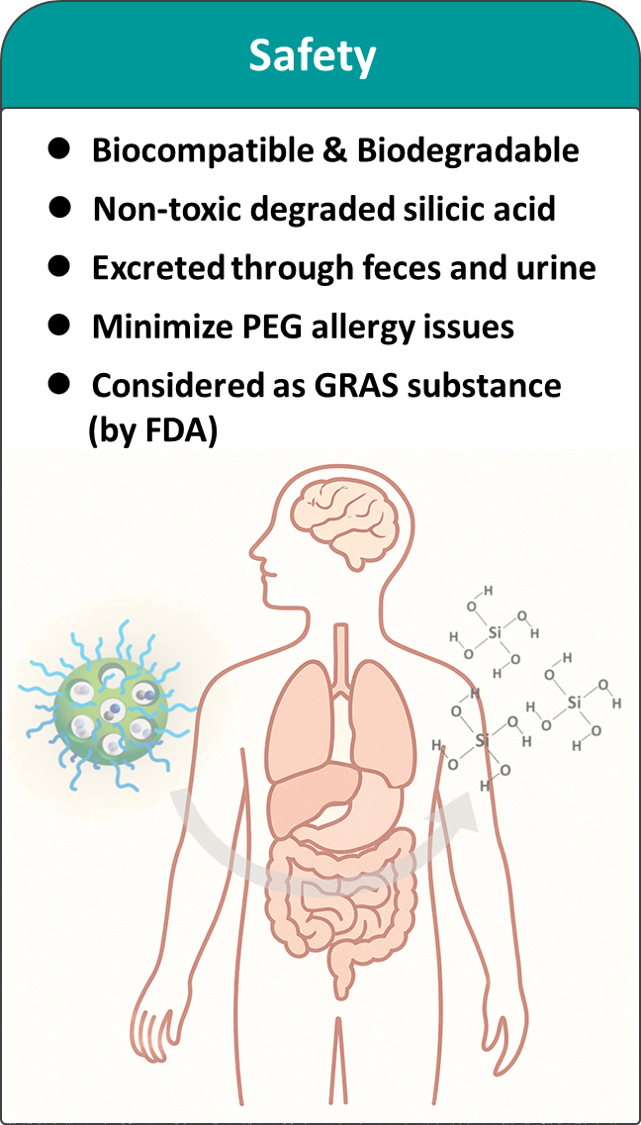
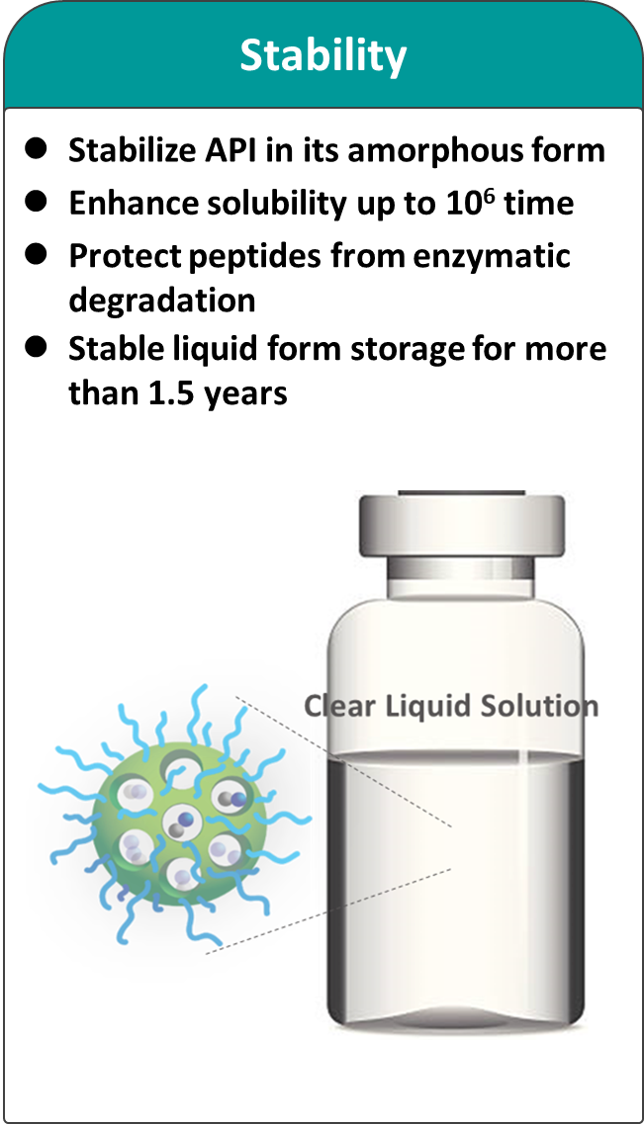
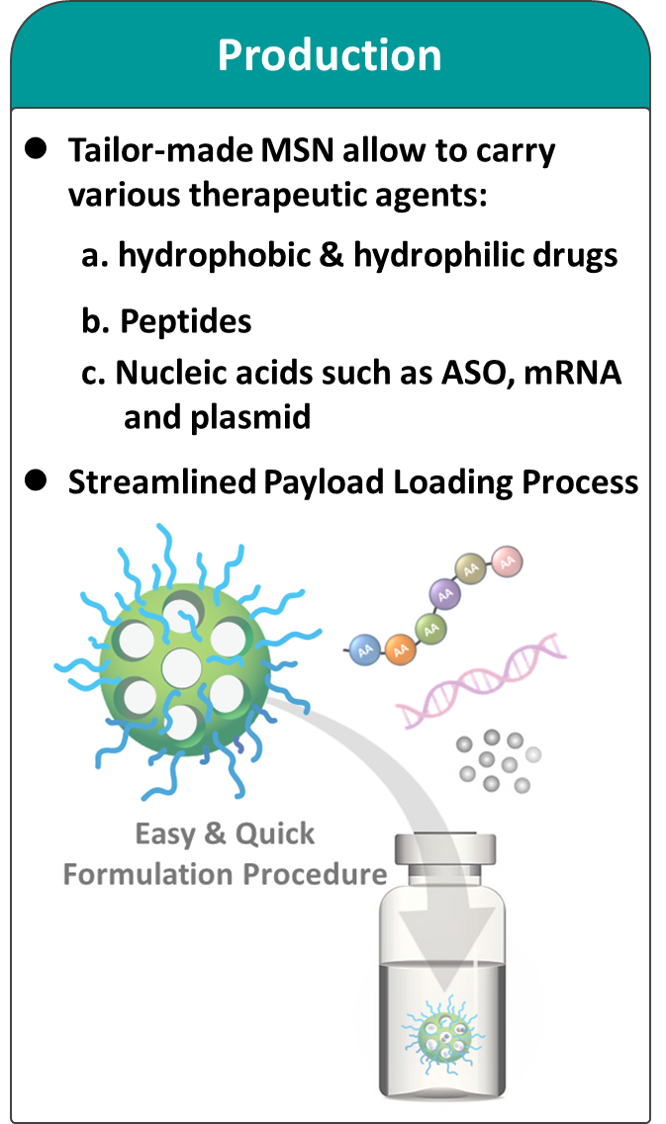
Therapeutic Applications and Focus
